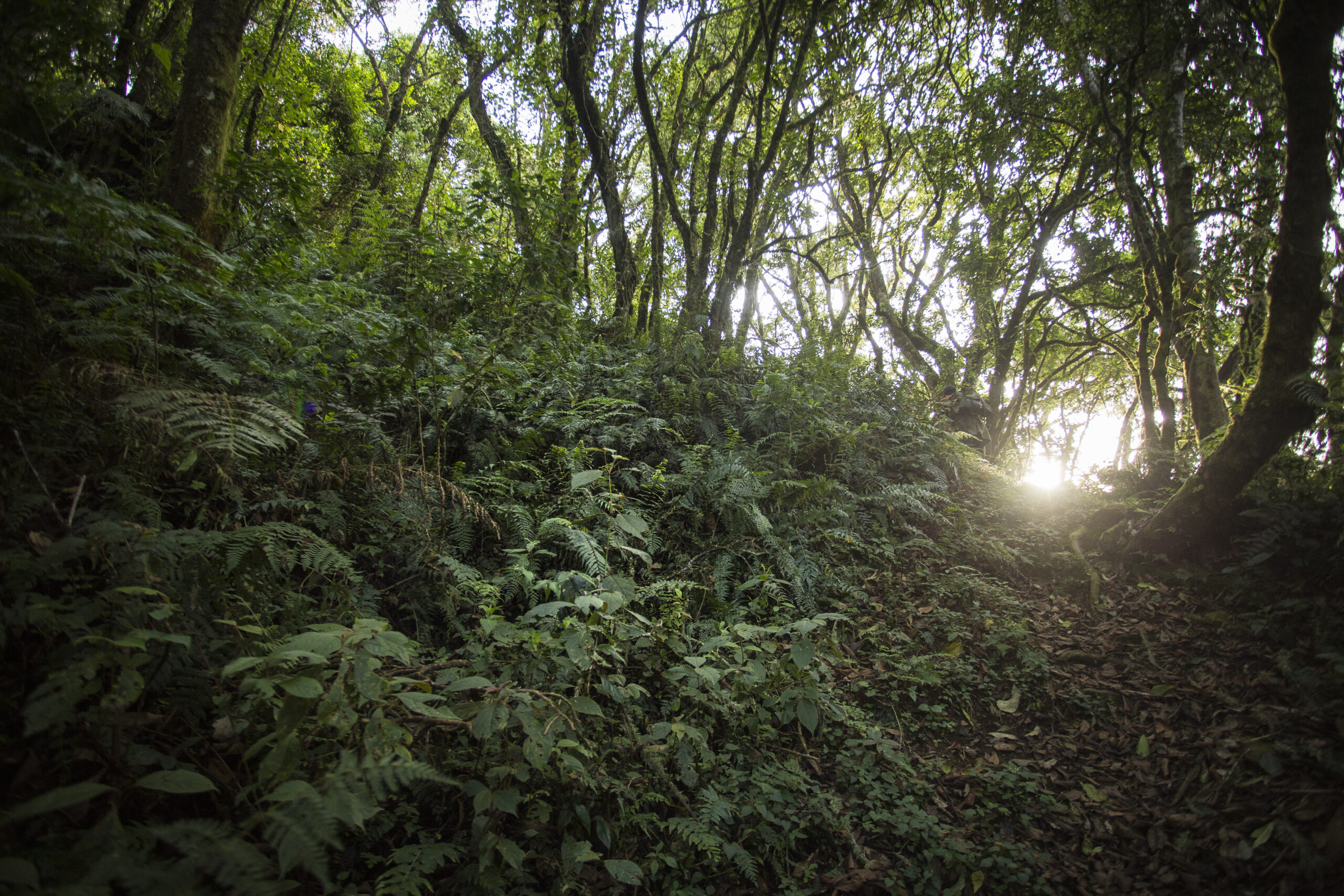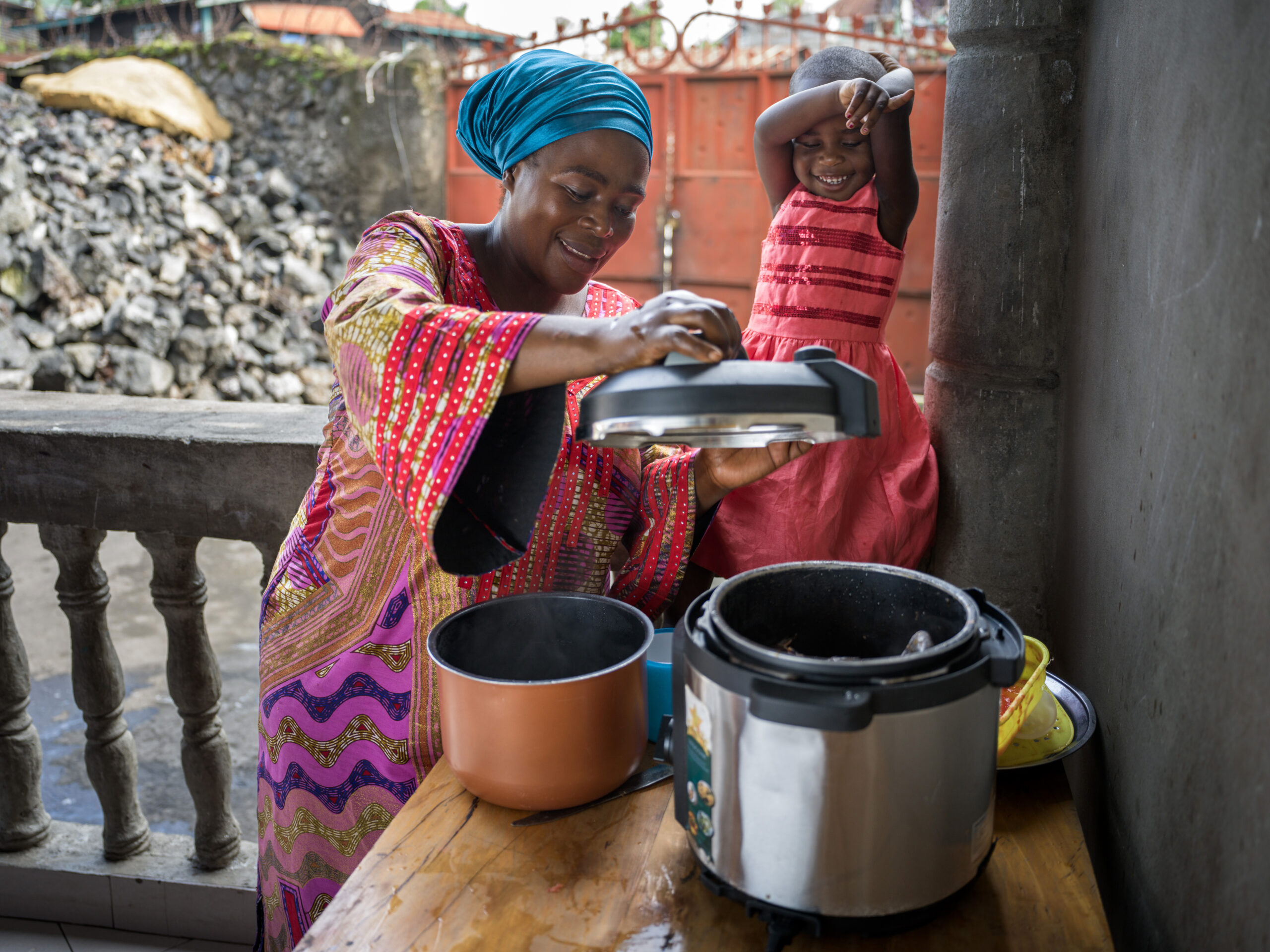Support Gorilla Conservation >

Since 2019, an experiment has been taking place in Goma to assess the benefits of e-cookers for the population living near Virunga National Park. In addition to promoting clean cooking solutions, the project aims to protect the environment by reducing reliance on the militia-backed makala black market. Armed groups who occupy areas of the Park destroy forest, produce makala and trade it – the local name for charcoal – to fund subsistence and illegal activities.
The Park Rangers’ job of protecting the Park is made more difficult by the illicit trade in makala, as it results in widespread deforestation and conflict. In the last ten years, there has been a notable increase in deforestation linked to the commodity, directly impacting biodiversity through encroachment and habitat destruction.

(Virunga National Park rainforest by Jospeh King)
With more than 90% of Goma’s population depending on charcoal as their main fuel source for cooking, electric pressure cookers have the potential to significantly reduce deforestation in the Park, while also helping to protect wildlife. A vital part of e-cooker uptake, however, is the availability of a reliable source of energy for the inhabitants of Goma. In the past, the city has been prone to lengthy blackouts, but with Virunga Energies’ hydroelectric plants now generating power for more than 30,500 households, the use of electric cookers for preparing meals is a viable option, leading to a trial of different e-cooker options.
To evaluate the e-cooker trials, the Virunga Foundation and Virunga Energies partnered with an independent research team formed in 2019. This team includes the Center for Environmental Economics of Montpellier (CEE-M / INRAE) and the University of Antwerp — an initiative financed by the European Union, the Fund for Innovation in Development (FID) / French Development Agency (AFD), PEDL, and USAID. Following a planning phase, in 2022, a total of 1,000 households received free electric pressure cookers and participated in usage demonstrations. In addition to equipment and training, users of the e-cookers received environmental awareness classes, a crucial building block towards a truly green economy.

(Women using e-cooker in Goma by Brent Stirton)
In 2024, quantitative results from the trial showed a 30% reduction in charcoal use, saving the average household more than $8 per month – a sizable sum for the region. This reduction in charcoal use not only protects Virunga National Park by decreasing deforestation but also boosts household savings. Surveys of Goma residents also indicated a positive reception to the e-cooker rollout, as well as a strong interest in Virunga National Park’s environmental and social issues.
As the project continues, the Virunga Alliance, with the support of its partners, are looking to scale the project through subsidization of equipment and electricity as well as further environmental awareness-raising. With its continued success comes a shift towards green-energy powered food preparation, not only in Goma but also across the entire Virunga region and beyond, helping to reduce deforestation and conserve precious biodiversity in the DRC.
Learn more
Learn more
Learn more